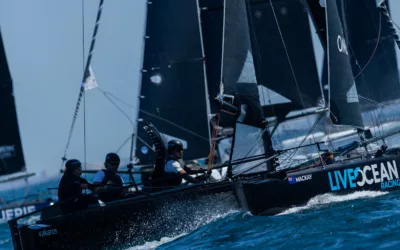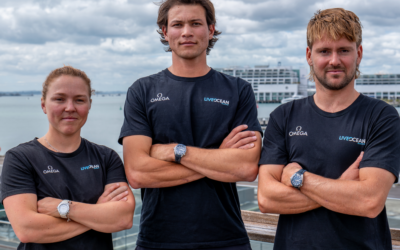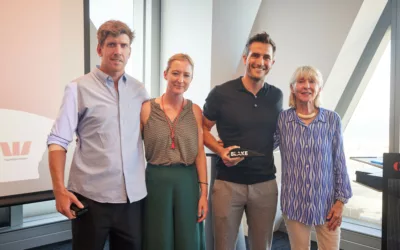It’s possible the ocean’s kelp forests have unrealized potential which could prove hugely valuable in the global push to reduce carbon in the earth’s atmosphere, but there’s a piece of the kelp puzzle that needs solving.
With the help of the Hugo Charitable Trust, Live Ocean can support the work of Dr. Caitlin Blain from the University of Auckland to investigate how kelp forests contribute to coastal carbon cycles.
“Kelps play a vital role in a healthy marine ecosystem as both food and habitat for marine life. And while there’s some excitement globally about kelps’ ability to use carbon dioxide from the surrounding seawater and atmosphere for growth, very little is known about what happens to the carbon once it is released from the kelp,” says Dr Caitlin Blain.
Researchers know the majority of the carbon fixed by kelp through photosynthesis is being released back into the ocean, but what happens to it after that? This research will help scientists understand the long-term fate of this released carbon and the role of kelp forests in carbon sequestration.
Sally Paterson, Chief Executive of Live Ocean Foundation says supporting Dr Blain’s vital work is an example of the foundation’s ability to scale up the work of exceptional marine scientists working in New Zealand.
“Dr Caitlin Blain is one of a handful of scientists around the world working in this compelling area of kelp as a nature-based solution in the face of climate change. It’s this sort of knowledge that could really step-change the way the world sees these underwater forests and how we prioritise the protection and management of them.”
The Hugo Charitable Trust
Maryanne Green established the Hugo Charitable Trust in 2017 to continue the legacy of helping others started by her father, Hugh Green. Hugh Green’s aim was to assist poor people in social and medical areas; to give back to the people of New Zealand but never forgetting where he came from.



